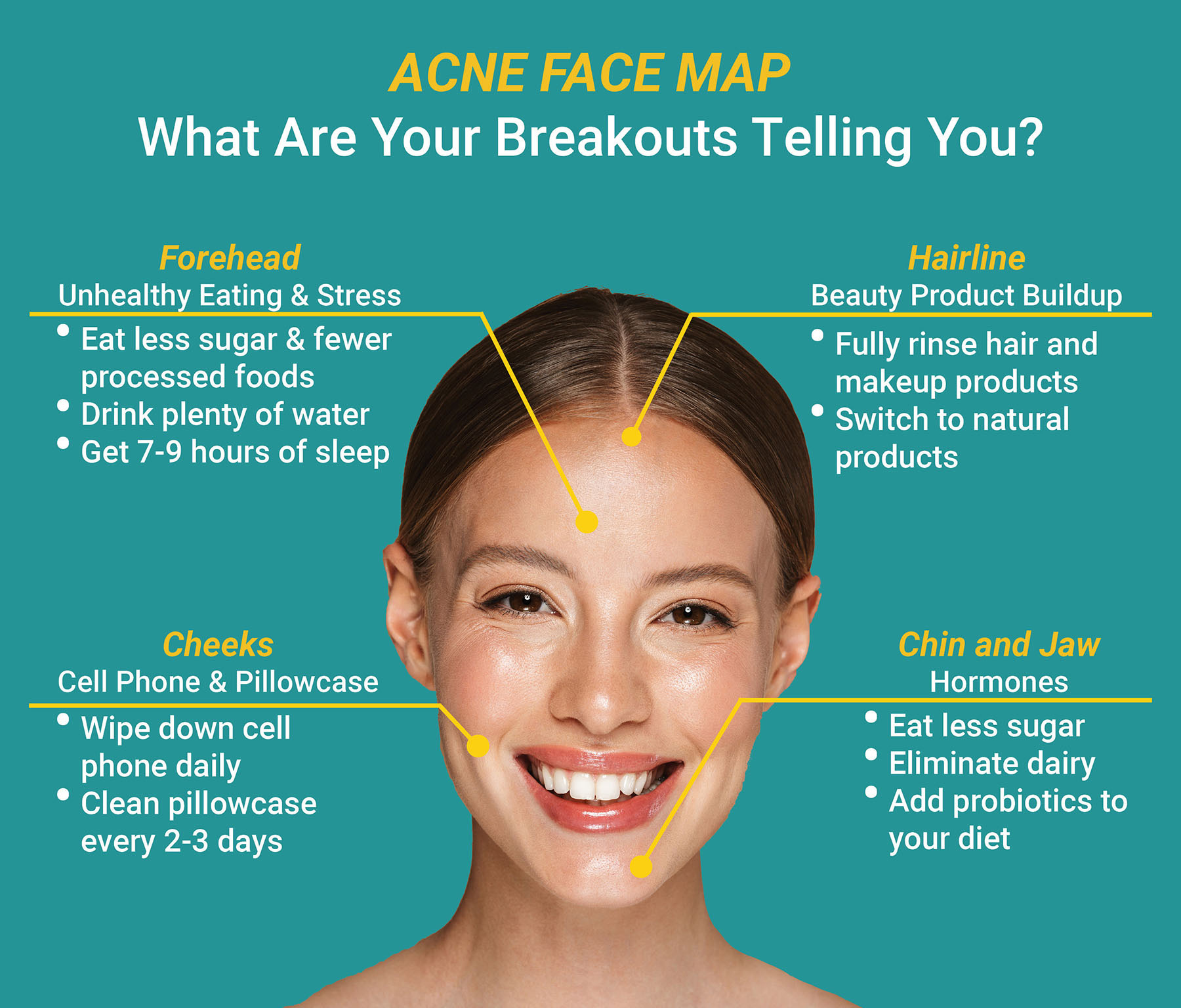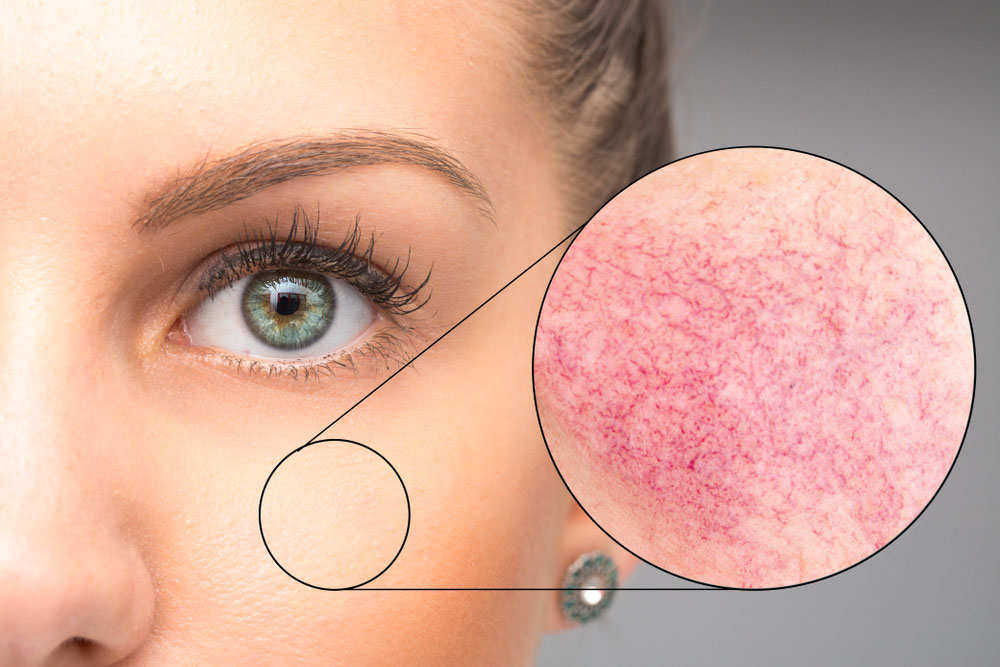
Simple at-home measures can be taken to lower your chances of a bad breakout. Use a gentle, water-based cleanser to wash your face daily, try activities to lower your stress, and eat a well-balanced diet high in fresh vegetables and whole grains. And remember you do not have to suffer in silence – acne is highly treatable under the care of a trusted dermatologist.
At Florida Dermatology and Skin Cancer Centers, our board-certified dermatologists are qualified to effectively diagnose and treat your acne symptoms with tailored options that will work for you.
If you suffer from acne scars, you may also benefit from one of our cosmetic treatments.

Rosacea causes redness, red pimples, and red vascular lines over the center areas of the face (cheeks, chin, forehead). It can also cause the nose to become red and bulbous. While rosacea comes and goes in flare ups, facial redness may linger longer or not go away at all as the condition progresses.
Scientists theorize that rosacea could be caused by hereditary factors, immune system factors, environmental factors, or a combination of the above. Although there is no permanent cure for the disease, there are several topical and medical treatment options available for management – if left untreated, rosacea can worsen over time.
At Florida Dermatology and Skin Cancer Centers, our board-certified physicians, physician assistants, and nurse practitioners are trained to diagnose and treat common skin conditions such as rosacea.
